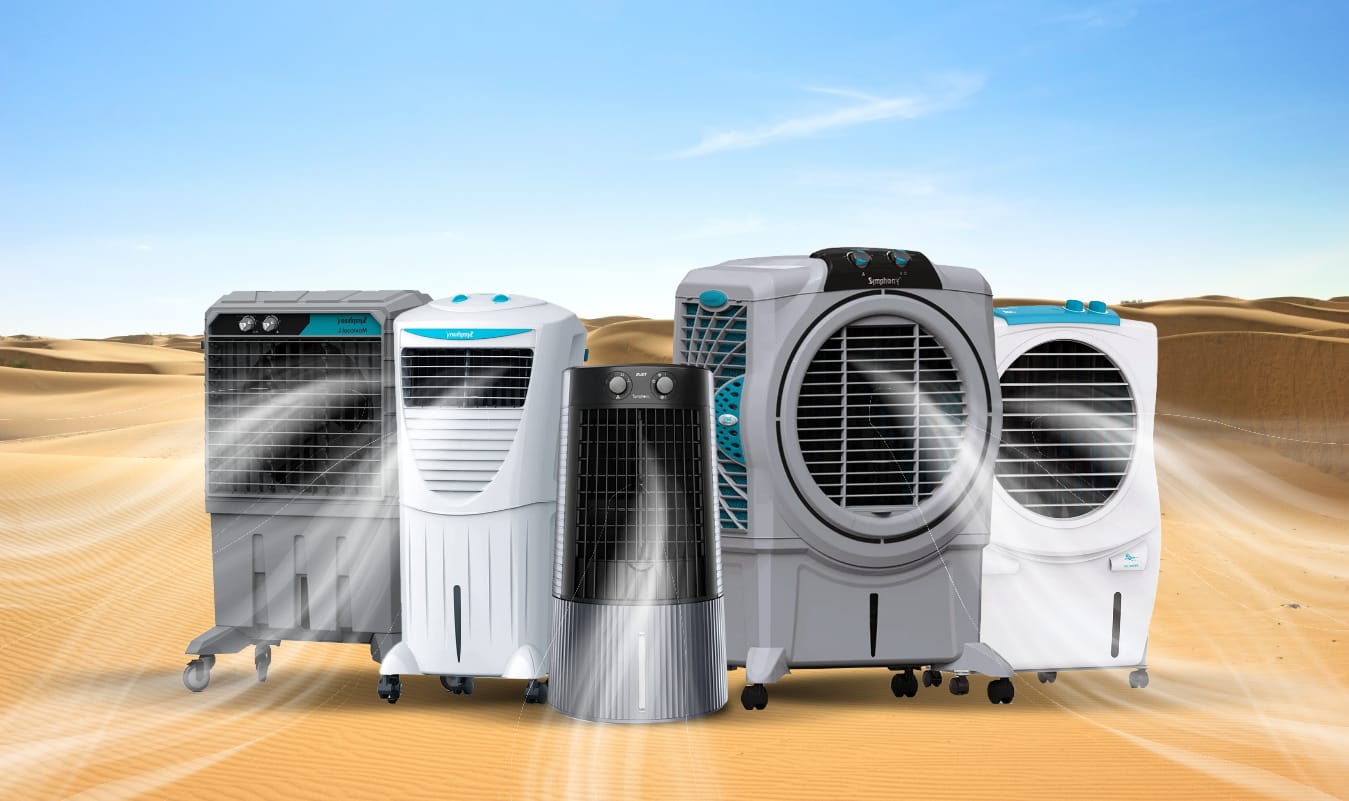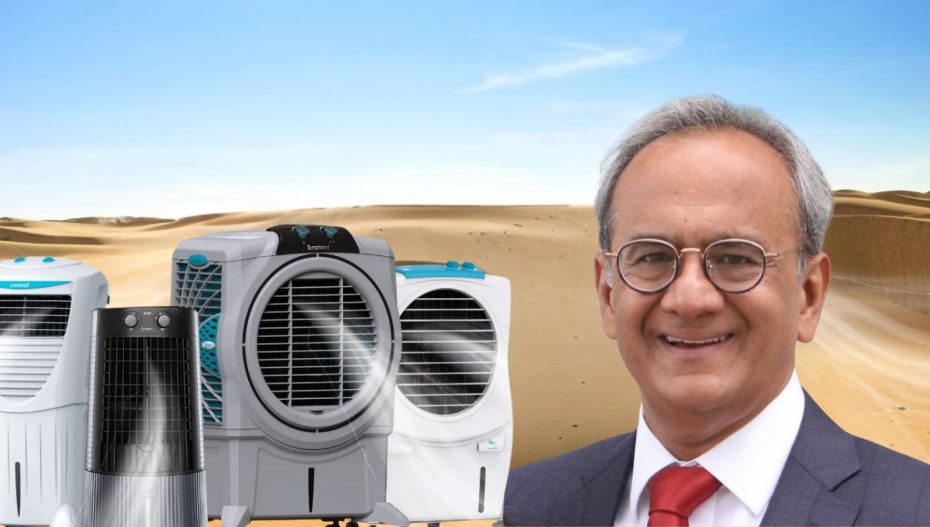Launched in 1988, Symphony has survived and thrived over 35 years to become an iconic Gujarat-based global brand. Legend has it that the brand was born of a dinner table conversation between Symphony’s founder-chairman Achal Bakeri and his father, construction magnate Anil Bakeri. The Bakeris had just installed an air cooler in their new house, in a largish space which was not amenable to air conditioning. The 27-year-old Achal loudly complained that the thing was intrusively noisy, which prompted his father to suggest he make a better one.

Air coolers, also called desert coolers since they worked best in places with arid climates, like Ahmedabad, were then a product of the unorganised sector. They were made of clunky metal sheets and since larger companies did not make them, there was no branding. Achal Bakeri changed all that.

The Symphony range of air coolers from Sanskrut Comfort Systems, designed by NID alumni Dinesh and Rashmi Korjan, were made of moulded plastic and looked a lot like air conditioners. Backed by a high-grade advertising campaign that featured the works of Van Gogh, Picasso and Rodin, Symphony was launched first in Gujarat and Madhya Pradesh. Priced at Rs 4,500, more than double the price of an assembled air cooler, it was an aspirational product.
The 90s decade was marked by liberalisation, a time when middle class aspirations suddenly received free reign. But it would still take a while for air conditioners, priced above Rs 30,000, to become a common feature in middle class homes. Till then, many households made do with owning Symphony air coolers. The new brand of air cooler functioned noiselessly, looked good and enhanced the status of its owner. In the durables market, it was a pioneer.

Buoyed by this early success, Achal Bakeri took his company public in 1994, renaming it Symphony Comfort Systems and later shortening it to Symphony Limited. In the late 90s, he extended the brand to a series of other durables like geysers, washing machines, room heaters and even flour mills. The move seemed logical, since air coolers are a seasonal product with zero sales in the winter. The new products were marked by high-grade design, just like the air coolers, and Symphony was banking on the same USP (Unique Selling Proposition) to see them through.
It proved to be a disastrous move. In marketing the new product range, Symphony faced competition not just from the unorganised sector, but from some well-known consumer durable brands like Usha, Videocon and Bajaj Electricals. These brands also entered the air cooler market, offering up new features. Usha came up with a model where you could control room humidity and Videocon offered a cooler that could also be used as a heater. Symphony’s share of the air cooler market fell, while new product inventories soared. By 2000, nearly bankrupt, it approached the BIFR (short for Board of Industrial and Financial Reconstruction, the precursor to the present-day National Company Law Tribunal).

As a BIFR company, Symphony received a reprieve from its creditors and it used it to close all other product lines and focus on air coolers. As its bottom-line improved, Symphony bought IMPCO, an American company that traced its lineage to Adam Goetti, who invented the air cooler in 1930. IMPCO’s manufacturing facilities are in Mexico and Symphony managed to turn the loss-making operation around and recover the cost of the acquisition in six months. Since then, it has taken over three more financially troubled air cooler companies, in China, Australia and the USA.
Symphony air coolers are now sold in 60 countries and it has moved from being a consumer-focused brand to an industrial brand as well. Large Symphony air coolers are to be found in supermarkets, warehouses, factories, and auditoriums across the world, including Russia, where Achal Bakeri jokes, “they need cooling if the temperature goes above 20 degrees.”

In India, Symphony has become an asset light company, outsourcing all manufacturing. Symphony has become a great corporate brand as well, a darling of the stock markets. Once traded at 80 paise, the Symphony share now trades at around Rs 1,000.
Gujarat Government Likely To Simplify Revenue Laws. Know Here













